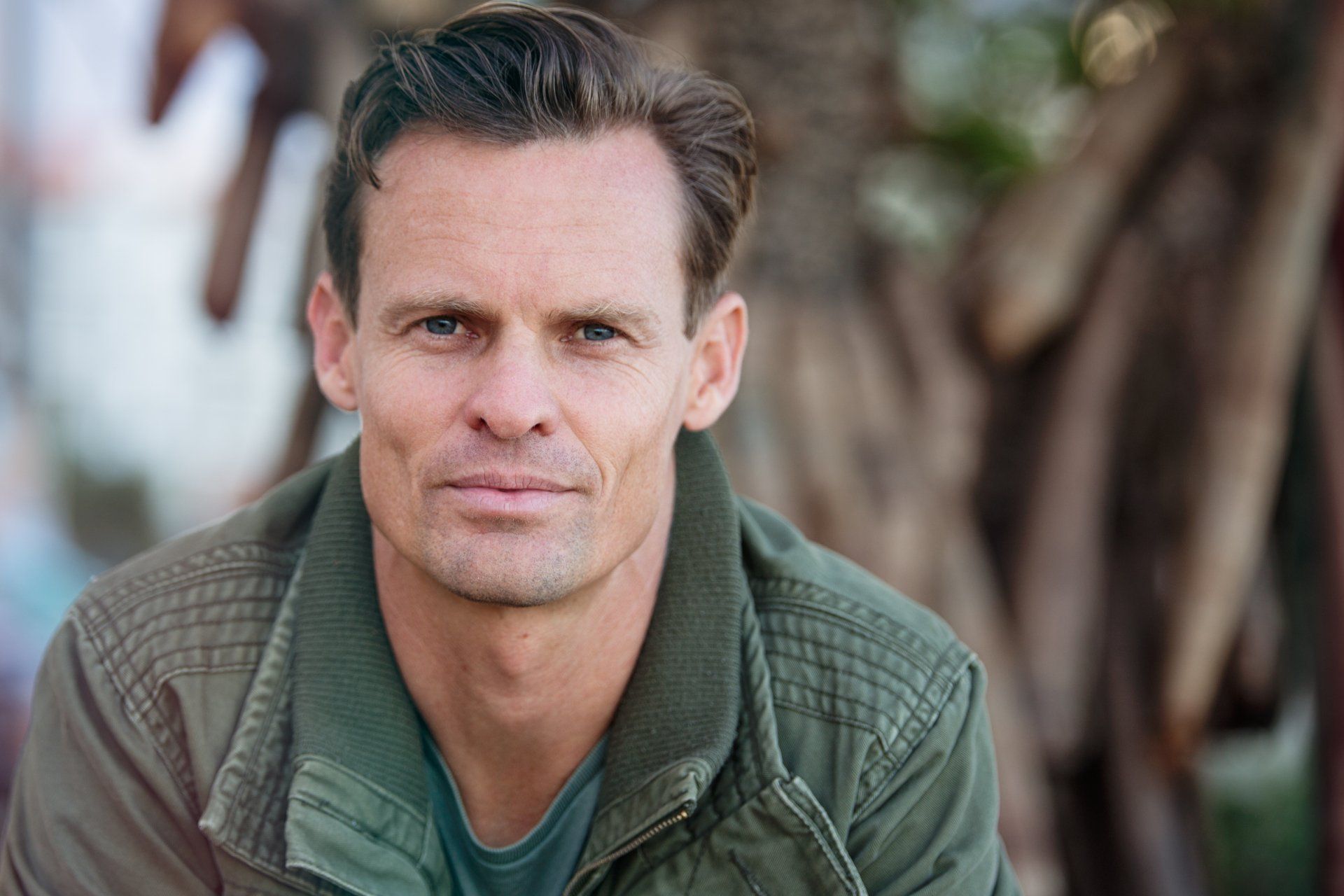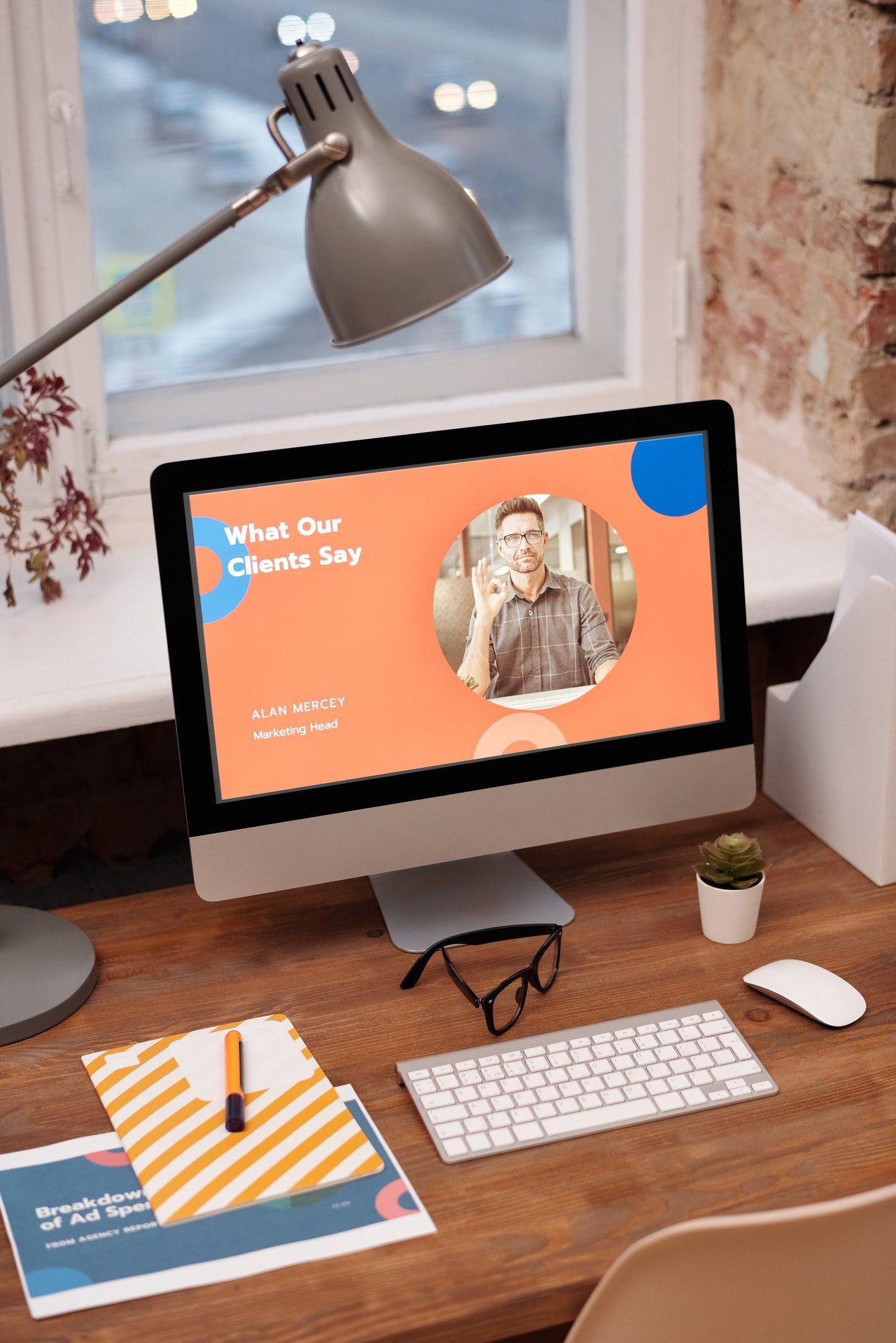"Dealing with your imposter syndrome early is really important "
Blam Partner Testimonial #15 Testimonial | Jon B. CEO DoodleBug
The following transcript is from this video interview here. Jon Bugg, CEO of We Are DoodleBug describes his journey to becoming successful as a Blam Partner.
Grant: Hi guys and welcome today to Mr. Jon Bugg, Director of We Are Doodlebug. Welcome, Jon. We are gonna have a chat today because John's been with us a while now and he's at quite an interesting point in his journey of being a Blam Partner, so I wanted to have a chat with him so he could share his journey in the hope that we can give information to prospective partners and also give inspiration to new partners and partners that are interested in seeing the way other people are running their businesses.
So, pleased to have you with me Jon and I must say, first of all, I'm loving your background. You've got it all going on with the logos. There's no chance of us not knowing where you're from.
Jon: Well that was the idea because I found people were going on Zoom and they're putting little labels at the bottom with all their details in. So I just put it in the background via Canva.
Grant: Here you go, tip number one, Canva is your friend. Brilliant so let's just start with a bit of background. So what industry were you in prior to starting your digital marketing agency?
Jon: I was in education, so I've been a teacher since the mid-90s. I rose up to headmaster level and found myself at the end of one month, having walked around the school realizing that I've seen 400-450 kids that day. I was sitting in my office and thought, 'how long is it since I've seen my daughter awake during the week?' It was a good four weeks and I realised that this [work-life balance] is not really for me. I've had my pound of flesh and I need to do something more for myself. So I went off to do some consultancy work in education and, as part of that, I had to learn about marketing/digital marketing and how that all fitted together. I did a course on that and loved it, absolutely loved it. It just lit fires in me that I hadn't experienced for years and it was exactly where I wanted to be.
I found myself talking to headmasters who are supposed to be talking about behaviour systems, special needs, and coaching their senior leaders. Instead, I was talking about how they were marketing their school. So then I was like 'this is a sign for me', that's where I need to move to.
"I had to make a decision to go 100% full-time on this and that was probably the best decision I could have made!"
I looked at different options and there were a couple of franchises that came up. I was just scanning through one of those sites and Blam popped up. I thought, 'that looks interesting', so I filled out the form and had a chat with you guys [Grant Stain and Edward van der Kleijn] and basically ended up signing up. I ran it concurrently to start off with so there wasn't a cliff edge, I didn't jump off and go bang - I'm all digital marketing now. It [my consultancy work] reduced over the years and the marketing work increased, but when Covid-19 hit the [education] consultancy work obviously disappeared completely. So I had to make a decision to go 100% full-time on this and that was probably the best decision I could have made!
The time [I spent on my digital agency] before gave me a good grounding in what I was doing. I [already] had clients and things [in place] and I'd learned a lot, but it [Covid-19] was the push I needed. Once I'd recovered from actually having Covid -
Grant: Yeah, you were really ill as well. I remember speaking to
you and it really knocked you off your feet, didn't it?
Jon: Yeah it was early days when I caught it in sort of mid-March or early-March 2020 and so it was a scary experience. I don't mind admitting there was one night where I thought my chips were up and that was it. You go through an experience like that and then it comes in waves. Every month or so I'd have another bout of it, but not as bad as that first time.
I certainly believed I was going to get better those times but yeah it kept coming on again and again and again. But even with dealing with that over the last sort of 18 months, I've still managed to grow the business so it was a pretty awful time but we're at the other side of it now and this year, in particular, has been really, really positive.
Grant:
Well you've really got some traction now and I think it's interesting, I just want to go back to what you said, because I actually wrote a blog about this over the weekend. You would not believe how many Partners have had a similar situation where they - prior to the pandemic - were running their business as a bit of a side gig and they were balancing it between either being in full-time or part-time work. Then when the pandemic and lockdown came, they decided to take the plunge. Either their other business [was affected], they were furloughed or they were in an industry that shut down and they committed fully to their business. It's happened so many times and every single one of them has said the same as you - 'I wish I'd have done it sooner' or 'it was just the push I needed'.
"It felt like I was perpetually winding and winding and winding and winding and then suddenly BANG! I took off."
Jon: Yeah it is, but there was also an element of... at the moment things are going really well. But, you know when you were a kid you had one of those elastic band airplanes where you'd wind it up and wind it up and wind it up? It felt like I was perpetually winding and winding and winding and winding and then suddenly BANG! I took off.
I think sometimes it's easy to lose sight of the end goal when you're so stuck in that winding stage and you're trying to get things up and moving. It feels like everything's hard work but, actually, once you've done that it's a really great foundation and you can take off.
Grant: Yeah, so I think to a certain extent I would say that [after] speaking to lots of Partners like yourself when you've got a side gig you're balancing two careers it provides you the opportunity to make mistakes. You learn your craft and get your confidence going so that you're not committing to it fully but you still need that push.
Jon: I remember some of the early clients I spent hours doing things that should have been done like that [*snaps fingers*] that nowadays I'll set aside an hour to do that job and it'll be done. And back then it was like, 'oh, everything's brand new I've got to work out how to do this and I've got to contact Blam, I forgot to ask the client this'. But once you've done it and you've got that schema in your head of how it all works then it's so much easier, so much more intuitive.
Grant: Well...digital marketing is a broad church, there's a lot to learn. I said to a new Partner yesterday we do try really hard to not give you information overload but we usually fail because there is a lot to learn. But, we've got a way of showing Partners how, even when you're at that early stage, you're an amateur you can use that to your advantage. We call it the 'Dummy Curve' and it is part of our training. We teach being a 'dummy' is a great sales tactic, [it] can make you feel a bit uncomfortable but you know I'm still a 'Dummy' now, it works for me.
Jon: Yeah I'm sure that's not true!
[Laughter]
The thing is... I've said to you before I was in a public sector [job] where the money is what the money is and you just do the jobs to the best of your ability...One of the big learning curves for me was the sales process and how to manage that. Don't get me wrong, it appeals to me because I like the process. I like to know 'I've got to do this, this and this' and then 'we'll do this and this' and work it through as we go along. It's something that has become an obsession of mine. I had no real experience and I got some great pointers from you guys to start off with to make sure that I actually got myself out there. I always think of it as the 'phone your friend' bit but that's not what you call it is it?
Grant: No, it's your hot leads.
"Dealing with your imposter syndrome early is really important "
Jon: That's it, it's about getting your hot leads and leveraging your network because one of the things I do now is...I go to a lot of events and talk to people, present, and stand up in front of people. Dealing with your imposter syndrome early is really important and I'm not saying stand on a big stage in front of everyone you know immediately but talk to as many people as you can about it [your business]. Even if they're not gonna buy from you, engage them in a conversation around it and they'll test your knowledge. They'll ask you questions and two things will happen: you'll realize you knew more than you thought you did and number two you'll find that you've got a good checklist of things to go and find out.
Grant: That is absolutely brilliant advice that is. The more conversations you can have with people about your business and put yourself in situations where you're having conversations is exactly [what I recommend], I couldn't have put it better myself. You've got that ability to grow and that's when it will just start becoming natural and now we were talking earlier about the fact where you now have the experience of knowing when a client is a good fit or not, and that's really difficult to know when you first start out because not every client is a good client.
Jon: Do you want me to tell that story?
Grant: Go for it, because I get this a lot by the way and, just to caveat the story, quite often if a Partner is new they are very keen to get customers on board...and that's a brilliant place to be but occasionally you get customers that aren't a great fit - a bit over-demanding, they might not be very nice people sometimes and when you're new it's difficult to say no. I always think that when a Partner starts to be more discerning and understands the difference between a good fit and a bad fit they're really getting it so with that in mind, tell me about your experience.
Jon: It's pretty much exactly what you said there. It was early days, I knew I needed to replace the consultancy work that had gone with Covid. I needed to get people on the books and this guy came along and he seemed really lovely, really nice but there were little hints as we were going through the process that actually he was a bit of a gas lighter. So he was presenting things as an agreed thing that I'd said I would do and I knew because I'd written down it was all in in the quotes and in the schemes of the schedules of work and all that sort of thing. But 'no, no that's not that's not right' and he went on and on and on. He always came across as really nice and in the end, I realized that I was spending the majority of my days thinking about one client who was a relatively small part of the business, obsessing over how I was going to manage him. At that point, I realised this isn't right and he basically complained that something hadn't been done so I said to him, 'Right, this is the original schedule that we agreed. This is the schedule, this is how it's been impacted by the extra things that you've thrown at me' and he couldn't argue with that because it was right in front of him. I said, 'what I'm going to do is I'm going to quote you for the schedule that we've got here' - which was about three times as much as what he paid for [originally] - um 'and there are no hard feelings, you can walk away that's fine or we can do the work and you'll be paying for what you're getting'. So I quoted him and he said no and he went off. That was a good way of dealing with that particular situation and then I thought there were early warning signs here that happened early on where he was almost too nice or he was saying things that were, it was difficult to put my finger on it, so what I did was I used one of the avatars that we've got from the digital marketing courses and I built an avatar of early warning signs and clients that I don't want to work with.
So now when I'm having conversations and I'm thinking that doesn't feel quite right then I'll extract myself. So for example I might say, instead of offering them an audit I might send them to the audits page so they can do their own audit and then submit their details and I'll then send them the outcome which is due. If I've done a face-to-face with someone, I always add some notes and give them my top three hints for the best bits to do next and it's a really strong part of the sales process.
Whereas with those ones [unsuitable clients], I'll send them the details and hope they don't get in touch.
Grant: You know what I think? It definitely shows that you're now getting experienced and I love that avatar idea. It's kind of like I've got a 'not-to-do list'. It's a bit like not to work with traits.
Jon: Yeah that's it and I think it empowers you to say, 'I'm not imagining this, this has happened before and however hard I work at this relationship it's never going to be a positive professional relationship'.
Having the confidence to say, 'right, I'm going to step away from this because I've got X number of meetings next week with X number of conversions and there's more in the pipeline.' It does take time to get that pipeline flowing. It sounds easy when I say it like that but it took months to get it to the point. I remember having conversations with Ed about the pipeline being empty. You have to get to the stage where you've got plenty going on at once, managing your time around that and keeping your head straight around what you've got to manage. It is difficult so calendar management, time management, multitasking, perseverance [is important], but when your funnel's full, all those things become easier.
Grant: That's weird isn't it? It's been topped up.
Jon: Yeah you've confidence there's no edge coming up where you're going to fall off and you've got no work.
Grant: A couple of things I wanted to touch on with you as well. So you're at the stage now where your business is growing and you're starting to think about the next steps. At some point, you're going to need to think about having somebody else work with you and as I've said to you before, Partners tend to fall into two different categories. You've got the Partners that love selling and want to carry on doing that and they'll take on an admin person. Then you've got the Partners that are the other way around that want to hand over the selling to somebody else. Ultimately not all Partners want to grow either, they just want to get to the point where their MRR (Monthly Recurring Revenue) is providing a fantastic revenue for them and it's ticking along nicely, they might add one or two clients a month but it's manageable.
But you're obviously in the school where you want to grow your business and this is the bit that I'd like to touch on because quite often, particularly with new Partners or prospective Partners, one of the things we often get asked about is how are you going to teach me to sell? You've not got any experience of selling and now selling is what you want to do and you want to recruit the admin. So I'd just like to dive into that a little bit more and find out what is it about that side of it that appeals to you?
"What I really like is getting out there talking to people...it's become something I'm slightly obsessed with."
Jon: Yeah so the model is that there's a client manager and a fulfilment person who keeps everything in the background running and all that sort of thing is something that I wanted to push [for] because I was used to being a figurehead and having people who did that stuff for me. So it's not a strength of mine the admin stuff and what I really like is getting out there talking to people. I like presenting, I like meeting new clients and as I learned more about the sales process - how it can be structured and how you can work out what you need to be doing at different stages - it's become something I'm slightly obsessed with. it's almost like you know you get the sale and you go, 'where's the next sale?'
"It's not something I knew a lot about but it's a process that I've really come to enjoy. You get an adrenaline rush when you sell..."
I have to have to remind myself it's really important that I fulfil this and do it properly. So that understanding [of the sales process] is what has really got me and that's what I wanted to focus on. It's not something I knew a lot about but it's a process that I've really come to enjoy. You get an adrenaline rush when you sell, it gives you a buzz. If I do a big one, I'll be downstairs telling my wife and kids - the youngest one's only 3 she didn't care! I've even been known to tell the dog if they're out and so you get those hits and that'd be something I'd really miss if it was all someone else doing it.
Now that's not to say that in the future I don't want a sales team because you know my vision is a bigger business where we've got a fulfilment department and a sales department and it becomes a machine. But that's still got to have my kind of character running through it because it's a busy market, websites and digital marketing, it's busy. Don't get me wrong, everybody needs it now and it's a bigger part of every
business, especially with lockdowns. There's plenty of room for us all,
it's not something where we're going to be squeezed out or
anything but you've still got to stand out, you still have to be the person who [clients] come to. For me, because I need to have people who I like working with, it needs to be people who are engaged by me and so that's got to be a major part of the [growth] process. So, I think if you want a business that is growing, you've got to sell. If you want a business that you enjoy working in, you've got to enjoy working with the clients and if you want people [clients] who fit you then you've got to put yourself out there and be that front. If you're - and I'm not saying this is wrong I'm saying this it's not for me - you're staying in the background and someone else's personality is out there, I'm going to be dealing with their ideal client coming through and that's doesn't suit my personality.
Grant: Yeah I can relate to that or all of what you said. It's awesome to see that you've gone from somebody who's not necessarily got a sales background to somebody who actually gets to see the buzz. Equally some Partners will go the other way as well, they'll prefer being the account manager or dealing with the admin and getting somebody else to do the sales. But my belief is, and this is absolutely key to anybody that's watching this who's thinking of becoming a Blam Partner, you have got to learn how to sell yourself first. It's such an important part of being a business owner, of being an entrepreneur and, even if you don't do it as
the business grows, you've got to be the one that is leading the way in that respect. Because, if you're going to take on salespeople you need to know they're doing it properly.
"Yeah, I had to work on it [the sales process], but boy was it worth it!"
Jon: Yes, yeah that was brought home to me by one of my clients actually. I'd been dealing with the general manager and the sales director and they were great and I had a really good relationship with them. Then I met the owner who basically went to the general manager himself and all his questions were about 'how many form submissions have we got? How many meetings are booked? How many design meetings have you got?' It was all about those early stages because he knew how his funnel worked and that was his obsession - making sure that they had the right levers in place so that they knew they were going to get the right number of sales out of it. It wasn't what he did day to day, but he understood it absolutely to fine detail, exactly what his team needed to be doing. So, if you have no sales experience, you can learn it. Don't get me wrong, if you've got a background in sales you're going to find it a lot easier to do the sales because you will have a whole mountain of knowledge and experience that you can draw on. But, those of us who don't have that experience are building it up. My mountain of knowledge was understanding the psychology of people, how they work, what their reactions were, what they meant by things and how to design and run a system. Once I realised that it was just a different context for that it all fell into place. Yeah, I had to work on it, but boy was it worth it!
Grant: That's awesome! I love what you just said about the funnel because part of our job is helping businesses, that's what we do and when we can relate to what they do we can apply simple marketing tactics and it's really rewarding to see. I always say with our clients, it's peer-to-peer, we're dealing with other business owners and entrepreneurs. I always say if you've got that instinct to run your own business, you're different [from most people] and we tend to get on, entrepreneurs tend to get on. That's why I love doing what I because all the Partners that I deal with are like me; they're ambitious, they're in a business, they love sales they love talking about business. When we go out to have a beer we talk about business for fun not because we have to. Other people don't talk about work, but I talk about work all day long and all night - I love it.
Jon: Absolutely. I spoke to a contact of mine, talking about business... she's brilliant, she's got a lot of skills that would be really valuable and she said, 'Look, Jon, you read business books for fun that's all you talk about so, of course, you think it's easy. I'm not in that place.' It wasn't right for her but I was dazzled by the fact that it was what I loved.
Grant: Yeah that's it, it's the five percent of people who are that way inclined. They're the ones that we really get on with.
So just to wrap things up. What I like to do with these chats is help Partners who are new to us and Partners who are looking to gain some traction. What advice would you give to a Partner right now who's new, they're learning their craft and they're just dipping their toe in the water. What would you give them as advice thinking back to what it was like for you back then?
"I think it's really important to remember that the grafts you're putting in when it doesn't feel like you're getting the reward for it...will come back to you and it will come back as revenue eventually."
Jon: I think it's really important to remember that the grafts you're putting in when it doesn't feel like you're getting the reward for it - if you're following your systems and you're doing the right things - it will come back to you and it will come back as revenue eventually.
Making those calls, sending those emails, going to those meetings, the networking events, and all that can feel like you're doing a lot for no reward. It took a good three months of doing that before it became
comfortable and before my funnel was filling up. Now I've got people who I spoke to a year ago who are coming back and saying, 'yeah I'm ready to go now'. They haven't just appeared, there's a lot of work that went in the early days.
"It's like a tanker: it takes time to get moving and to get the momentum going and then once the momentum is going it gets a lot easier to keep it going."
If you make a phone call and just basically have a good
conversation with someone and learn about the business but they're not really ready at the moment, whack it in the diary in six weeks. Ring them back and ask 'how's it going now?' Not only do they give you a chance to go over your sales process again but you will also nurture their understanding, they will start to trust you and they'll start to believe that you can offer what you're saying you'll offer. When they're ready, they'll come to you because they like you, they know you, they trust you and they want to give you their money to do their web design. That was a big learning point for me; realizing that those phone calls that didn't result in the sale weren't wasted, it was all building up the momentum for the business. When you get that momentum, it's like a tanker: it takes time to get moving and to get the momentum going, and then once the momentum is going it gets a lot easier to keep it going. But it takes a massive effort to get that movement in the first place.
Grant: A good analogy that is and like you were saying more and more of your business is now coming from referrals.
Jon: Yes so people I've worked with who like what I've done but also people who I've met in networking events and even just randomly who know, like, and trust me. When they're talking to someone, you appear in their mind and they think, 'oh I know someone who I can refer you to' and if they trust the referral is going to be seen to, they want to refer you because it means that they're then seen positively by that person who they might be doing business with. So the momentum building around your network grows and you're then able to leverage the fact that people know you and what you do.
Also, don't be too worried about obsessively talking about it [your business] because people are interested in how digital marketing works and websites. They don't know as much as you think they do and it's those conversations that help build your authority up and help people to know that actually you do know what you're talking about and you can fulfil what you say you can do.
Grant: That's a good one to finish off on because Partners often have - we talked about earlier, didn't we? Imposter syndrome.
You've done your certification, you've done your digital marketing courses, you know you've got all this knowledge...but you still feel like. 'blimey, I only know like a fraction of what I need to know!' But, at that point, you still know loads more than 99% of the people that you speak to by just doing those two bits.
Jon: And there's a saying that gets divined a lot around, 'fake it till you make it'. What that actually means is dealing with your imposter syndrome so it's not making something up and pretending you
know it. It's actually dealing with the fact that you know this stuff but you just aren't confident in it yet. The fake it till you make it is all about dealing with that imposter syndrome and saying, 'It's okay. I should put myself in that position and I should talk about it and just go for it.' You'll be surprised what comes out of your head.
Grant: Yeah that's so true, that's so true and I see that happen all the time. People are often quite like, 'I actually dealt with that! I think that
went really well!' They're quite surprised. That's awesome.
Brilliant, well finally I'd just like to try and get a little bit of insight from you about Blam just to give people that are watching this who are potentially thinking of joining Blam - it's always good just to hear it from
the horse's mouth. I haven't prompted you on this, so just speak honestly. So what's it been like dealing with us? Obviously, I'll just cut it out if you slag us off.
[Laughter]
Jon: Right, so what I'd say about working with Blam is just give them
the work to do because they make you look good. I'll submit a sign-up form and immediately get an automatic response to say you've
got it. I know that if there are any questions about it, I can respond to that and someone will get back to me.
We've had problems with [clients'] security certificates and then
your guys get back to me straight away and say 'yeah
I've done something' or 'no, Jon you've got to wait forty-eight hours'. And that's the other thing actually, they're very good at... I can be fairly abrupt and I do know that...but they always come back to me they're always friendly, they're always wanting to help. When I did my first e-commerce site, one of your developers sat with me and went through how the spreadsheet worked and how it all fitted together.
"Without Blam, the business wouldn't be where it is now"
The service has been excellent, really really good and if I don't know how to do something they'll show me how to do it in a way that means I can do it in the future. Without Blam, the business wouldn't be where it is now. I'd be fiddling about still, learning how to do things that don't really interest me and I know that anything I hand off to Blam comes back down really well and I love that about them.
Grant: Thanks mate, appreciate that. It's our goal to support Partners in any way we can and obviously, we've got the fulfilment side of it and then we work really hard with the motivation, the mentorship, and the whole sort of entrepreneurial world. Because I always think with
Blam you've got the fulfilment side of it which we've got to deliver the best products in the world and we've got to deliver the best service - for me that's a given. The other side of it is, how do we help a new entrepreneur? Somebody new to business, who might be new to sales, and might be new to working on their own. That's the other big side of what we want to deliver so that people can you know-
Jon: I can clarify that then because, as I said earlier, there are things I've just never done before and the reason I do them now is because you guys coached me through those early days. 'This is how you start off, this is what you need to do first your phone you know you do your hot
leads list...Then I made a comment about the audit not working properly so you were straight on the phone. You personally rang me up and said you're doing it wrong Jon, so I changed it and did it better and now it's an integral part of the sales process. If I don't do it, the conversion rate goes down massively. I started off if they [clients] came to me and they knew what they wanted, I just went straight into the website pitch but actually doing the audit first is a much stronger way of converting them, they're much more likely to convert. And, as I said earlier, I really enjoy that bit.
The bit I don't enjoy is the bit that you guys do day in day out for me which is why I focused on that...I'm just thankful every day that I don't have to do all that stuff.
Grant: I must admit, I'm with you. The team take care of it for
me as well.
Jon: But my firm belief is that in any sort of business or enterprise you have a role to play and if you play to your strengths then it's going to work really well. If you obsess over your weaknesses, unless you can turn them into a strength, then you know [it won't work]. So sales for me
was a weakness turned into a strength but admin for me is a weakness and it will always be a weakness. So I'm going to balance it out.
Grant: Brilliant well it's been an absolute pleasure talking to you Jon. I really appreciate your time and I'm really pleased to see how things are going for you and expecting big things. Looking forward to having those conversations with you where we are
recruiting and seeing that growth because that's the bit you know I love to get involved with. I've got a lot of Partners in that position at
the moment and I've got something I want to talk to you about that I hope is going to get you excited that can really help you on that
journey. But, with that little teaser, I'll say thanks very much and I will speak to you very soon.
Jon: Thanks Grant speak to you soon cheers












